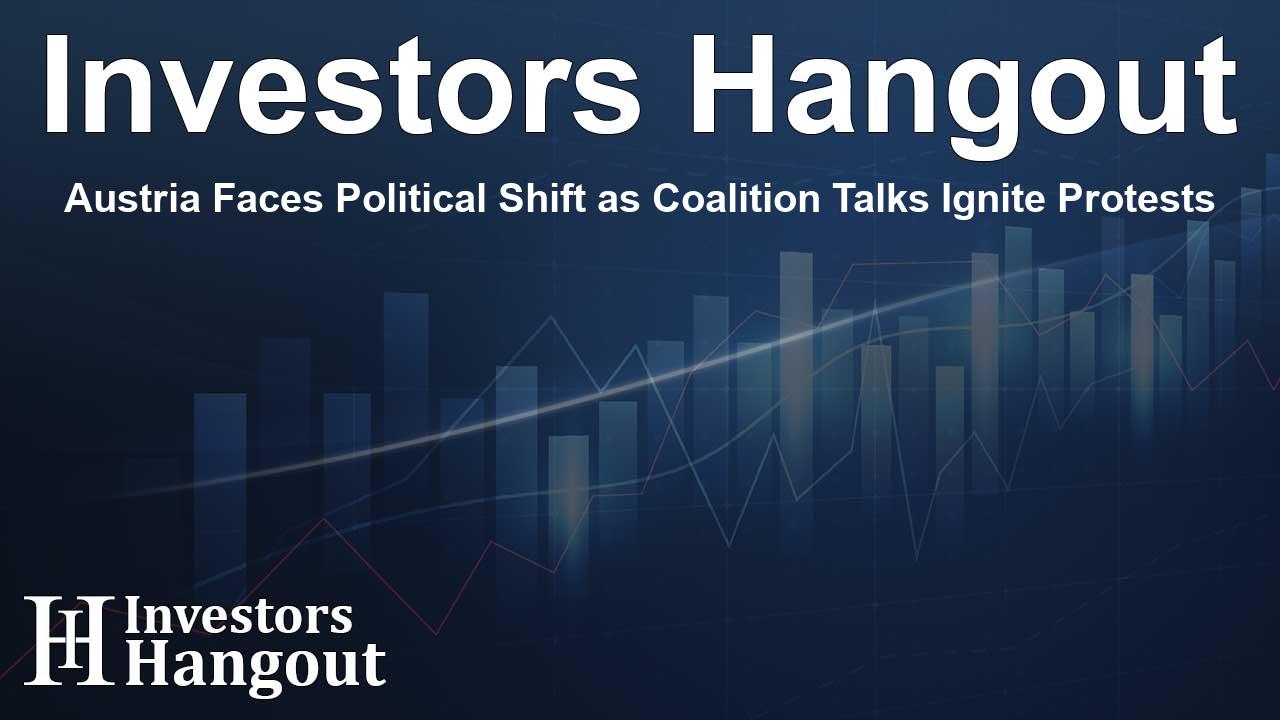Austria Faces Political Shift as Coalition Talks Ignite Protests

Political Dynamics in Austria: The Coalition Talks Begin
As the political landscape in Austria shifts dramatically, the country witnesses its far-right Freedom Party (FPO) stepping into the spotlight. With coalition talks commencing, concerns grow over what this means for democracy and social cohesion. The FPO, known for its eurosceptic and Russia-friendly stance, claims a significant victory in the capital’s recent elections, garnering around 29% of the votes, positioning itself as a key player in shaping Austria's future.
The Rise of Far-Right Politics
Led by Herbert Kickl, the FPO surges into coalition negotiations, a move met with substantial opposition from segments of society. Just as the political wheel turns, thousands of protesters gather in Vienna, voicing their discontent with placards that ring out powerful messages like "Nazis out" and "History is repeating itself." For many, this moment serves as a painful reminder of previous far-right governance, prompting a collective outcry to preserve Austria's democratic values.
The Coalition Talks Essentials
Kickl's first order of business emerges as negotiations surrounding the national budget. This pivotal discussion sets the tone for potential governance, emphasizing the need for stability in a country teetering on the edge of political extremism. Observers note that while talks are essential, the FPO's controversial past complicates the landscape. The atmosphere buzzes with anticipation as discussions evolve, with the promise of democracy's fragility hanging in the balance.
Chancellor Nehammer's Resignation
The resignation of Chancellor Karl Nehammer from the conservative People's Party (OVP) marks a significant turning point. Tasked with leading coalition discussions, Nehammer's efforts faltered due to rising tensions and disagreements regarding FPO inclusion. This shift paves the way for Foreign Minister Alexander Schallenberg to take the reins and attempt to steer negotiations in a productive manner. The political chessboard reshuffles again, leaving many citizens wondering what comes next.
Public Response: Protests and Promises
Thursday's protests reflect not only dissatisfaction with the FPO's potential governance but also represent a broad mobilization of civil society. Various organizations advocating for human rights, democratic integrity, and environmental responsibility rally their constituents, amplifying voices against what they perceive as an extreme right-wing threat. The FPO's previous governance experiences, although limited, still loom large in the public consciousness, prompting fears of a backslide into autocracy.
Austrian Sovereignty and International Relations
As the OVP’s interim leader, Christian Stocker expresses readiness to negotiate with the FPO, the primary concerns voiced include Austria's sovereignty and foreign influence, particularly in light of current geopolitical tensions. These conversations couple with pledges to maintain Austria as a trustworthy EU partner while navigating the murky waters surrounding Russia. The fervor surrounding these talks indicates the challenges ahead as parties seek common ground amidst diverging ideologies.
The Way Forward in Austria’s Political Journey
As coalition talks unfold and protests persist, Austria stands at a crossroads where actions taken today will shape the trajectory for years to come. With the potential rise of the FPO, citizens remain vigilant, advocating for the country’s core values of democracy and social unity. This period of uncertainty serves as a stark reminder that the preservation of values and voices will be paramount in defending Austria's democratic foundations. As the debates continue and the streets remain filled with passionate advocates, one thing is clear—change is already in motion.
Frequently Asked Questions
What is the Freedom Party (FPO) in Austria?
The Freedom Party (FPO) is a far-right political organization in Austria known for its eurosceptic and pro-Russian positions, having gained prominence in recent elections.
Why are protests happening in Vienna?
Protests in Vienna occur in response to the potential formation of a coalition government led by the FPO, with various groups expressing concern over democracy, human rights, and social cohesion.
Who is Herbert Kickl?
Herbert Kickl is the leader of the Freedom Party and is tasked with forming a coalition government following the party's electoral success.
What are the main issues being discussed in the coalition talks?
Key issues include the national budget, safeguarding Austria’s sovereignty from foreign influence, and maintaining democratic values during the coalition formation process.
How has public sentiment changed toward the FPO recently?
Recent polling indicates a surge in support for the FPO, marking a notable shift in public sentiment amid escalating political tensions.
About The Author
Contact Ryan Hughes privately here. Or send an email with ATTN: Ryan Hughes as the subject to contact@investorshangout.com.
About Investors Hangout
Investors Hangout is a leading online stock forum for financial discussion and learning, offering a wide range of free tools and resources. It draws in traders of all levels, who exchange market knowledge, investigate trading tactics, and keep an eye on industry developments in real time. Featuring financial articles, stock message boards, quotes, charts, company profiles, and live news updates. Through cooperative learning and a wealth of informational resources, it helps users from novices creating their first portfolios to experts honing their techniques. Join Investors Hangout today: https://investorshangout.com/
The content of this article is based on factual, publicly available information and does not represent legal, financial, or investment advice. Investors Hangout does not offer financial advice, and the author is not a licensed financial advisor. Consult a qualified advisor before making any financial or investment decisions based on this article. This article should not be considered advice to purchase, sell, or hold any securities or other investments. If any of the material provided here is inaccurate, please contact us for corrections.
